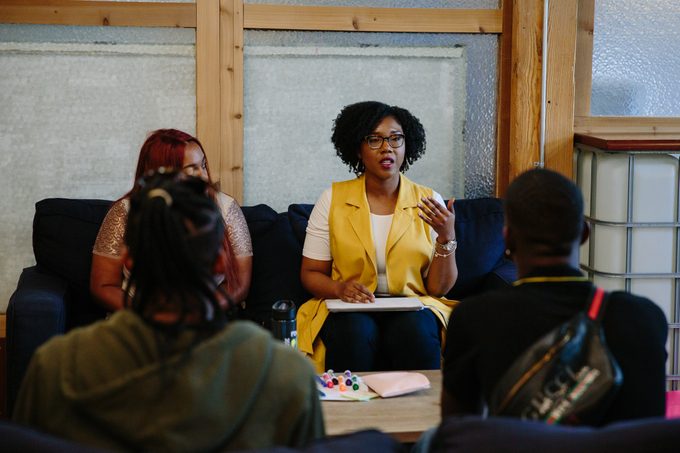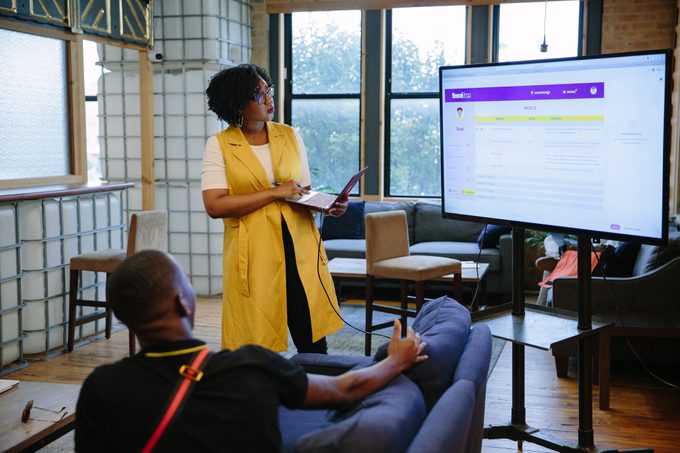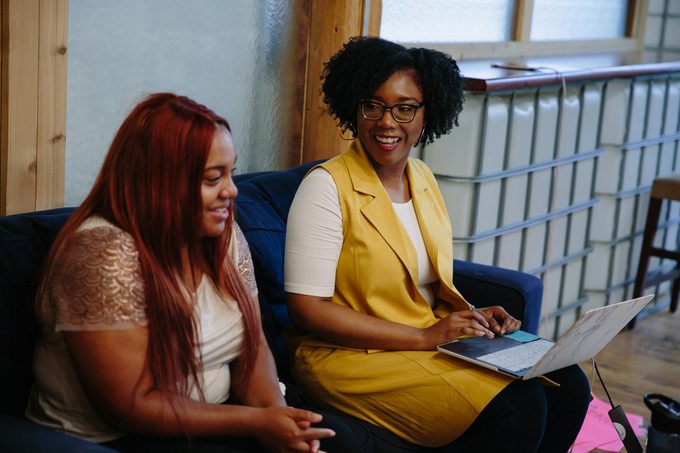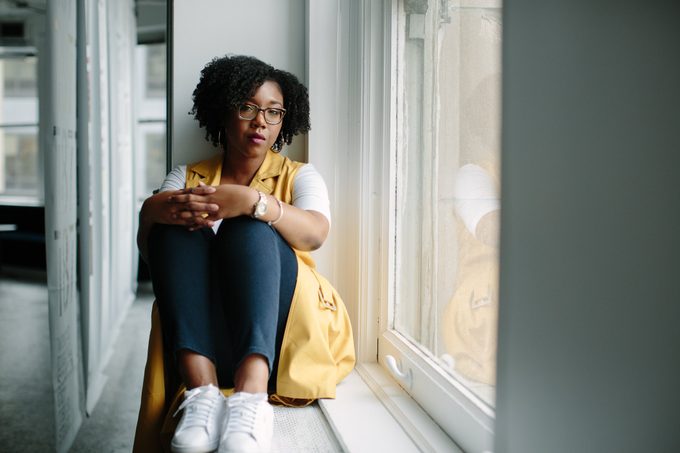Do You Get Food Stamps for Foster Care
After growing up in the foster care system, Shanté Elliott is working to help others transition out of it.
Shanté Elliott is no stranger to the foster care system. In fact, it was a system Elliott was once shuffled around in herself; she was forced to change schools and acclimate to different homes over and over again before finally being adopted at the age of 13.
After such a difficult start in life, Elliott became the first member of her family to graduate college, double majoring in literature and communication and earning a master's in education policy. Today she is pursuing her doctoral degree. She's also taken her personal experience, education, and entrepreneurial spirit and created a foundation dedicated to helping others within the foster care system.
The negative stigma of adopting teens
Elliott knows firsthand the challenges facing teenagers within the foster care system. "Often, teenagers are not viewed as children but as adults," she recently told Reader's Digest. "Think about it—most families looking to adopt want to adopt an infant or young child, so they can experience developmental milestones with the child."
There are ways to help foster children without becoming a foster parent, but finding permanency is still what most foster youth need most. And for those who age out of the system without finding those forever homes, there are additional challenges to face. According to Youth.gov, these kids are at greater risk of homelessness, unemployment, health problems, legal issues, and dropping out of school, all of which can make succeeding in adulthood more difficult.
 Courtesy Nilaya Sabnis Changing the conversation
Courtesy Nilaya Sabnis Changing the conversation
Elliott wants to see that stigma end. "We need to change the national dialogue around this in a way that highlights the needs of older children. All foster-involved children want consistent homes. Potential families need to realize this."
It's a reality Elliott is passionate about helping others realize. "The need for protection, love, opportunity, and safety has no age limit. If more teenagers were adopted, youth would have more successful long-term outcomes after foster care." That's something these older foster kids who found their forever homes can attest to.
And it's why Elliott has dedicated much of her life to helping these kids and eradicating the stigma that may prevent others from giving them a chance.
A passion for helping others
Over the years, Elliott has worked as a higher education administrator and a director with Court Appointed Special Advocates (CASA). "I helped students from rural and low-income communities, and African-American men and women, access and matriculate college." And with CASA, she says, "I provided children in the foster system with an advocate, an individual trained to speak on their behalf in court."
While she felt good about the work she was doing, she said it also left her wanting to do more. "I was interested in creating long-term change for youth post–foster care."
 Courtesy Nilaya Sabnis And TasselTurn was born
Courtesy Nilaya Sabnis And TasselTurn was born
Working as a "champion for youth in foster care," Elliott started TasselTurn, a foundation aimed at helping foster youth transition out of foster care. She explains her goal is to expand access, opportunity, and educational attainment for those within the foster care system. "Education remains the greatest weapon to change lives. This is why I started TasselTurn."
One of TasselTurn's main goals is to help foster youth graduate. "A high school diploma is the stepping stone into college or to [beginning] a meaningful career through a trade or other subject-based skill," Elliott explains. Using an academic coaching model, they provide personalized support throughout high school and beyond.
Getting started
Of course, nothing worth having ever comes easy. And starting TasselTurn was no different. "It was very difficult, so I took my time," Elliott explains. "During our earlier days, I was still working full-time with CASA. However, after completing a year of market research to test if the sector had the capacity to support our intervention, I acquired the funding to build our app and pursue TasselTurn on a full-time basis."
They've since tackled some of the biggest issues that often surround starting a company, including legal, HR, and business development. Elliott says, "Securing funding through grants and private donor gifts continues to be a challenge." Luckily, she adds, "I am no stranger to hard work."
 Courtesy Nilaya Sabnis Expanding the dream
Courtesy Nilaya Sabnis Expanding the dream
"After a year of grassroots work," Elliott says, "we had our first full operational year in 2018." Since then, TasselTurn has taken the steps to access early funding and to continue building and improving its model. "Additionally, we have cultivated a great stakeholder network in Chicago and have served hundreds of youth and coaches." And they are no longer just focusing on foster care youth. "Our model has expanded to serving youth experiencing homelessness," Elliott explains. Here are the things everyone gets wrong about homelessness.
Changing the world
But the biggest accomplishment of all has been seeing one of the dreams of TasselTurn realized: helping disadvantaged teenagers achieve their educational goals. "One of our first students is now attending college in St. Louis, where he is a sophomore," Elliott says proudly. "He is proof that our intervention works and that is what motivates me to keep going!"
 Courtesy Nilaya Sabnis Looking to the future
Courtesy Nilaya Sabnis Looking to the future
While Elliott acknowledges the startup journey can be unpredictable, she remains hopeful that TasselTurn will continue to grow and help as many kids as possible. "In the future, I see TasselTurn becoming a brand name and serving foster-involved youth nationally. I want to grow my team to a total of seven within two years and launch our annual philanthropic event: an awards show. Most importantly though, I want to partner with the government to implement child welfare changes at the policy level, so that all children in the foster system have a more positive experience."
"Don't dim your light"
Because her heart is still, and perhaps always will be, with those kids being shuffled around the foster care system, Elliott has one additional piece of advice for any young girls who might be experiencing situations similar to those she grew up in. "Going through difficult circumstances has a way of making you feel that you are the problem," she says. "This can make you shrink yourself. To any young girl struggling through difficulty, I would encourage her to not dim her light. We all have a light uniquely designed for us. Your light is your gift and the world needs your gift. I would encourage her to always share her gift, no matter the circumstance."
And sharing her light, her gift, is something we certainly hope Elliott continues to do.
If you're open to considering fostering or adopting some of these kids yourself, there are some myths about adoption you need to stop believing.
Shanté Elliott has been nominated as one of L'Oreal's 2019 Women of Worth.
Do You Get Food Stamps for Foster Care
Source: https://www.rd.com/article/i-was-adopted-at-13/
0 Response to "Do You Get Food Stamps for Foster Care"
Post a Comment